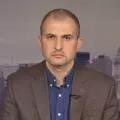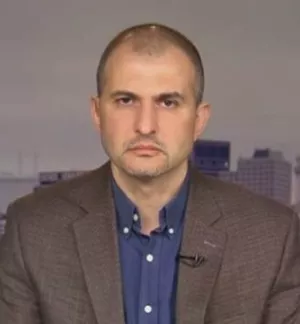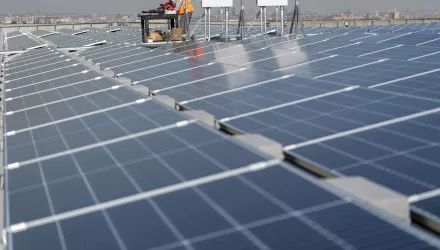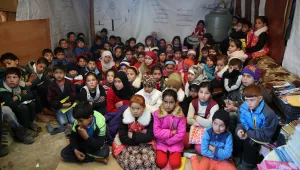Half a year since Vladimir Putin’s election for a third presidential team, it is crystal clear that the expectations of a “Putin 2.0” raised by his aides during the campaign are plain unrealistic (unless, of course, “2” refers to the number of years that some of the more vocal critics of the Kremlin may have to spend in prison).
Putin initially signaled preparedness to accommodate some of the demands for liberalization voiced at the unprecedented protests that galvanized Russian cities in winter. But he has been taking pains since his return to the Kremlin to constrain the ability of the Russian public to rally for changes in the way he has run the country since 2000. Indeed, no leader voluntarily reinvents himself or his system of governance late in his rule and Putin is no exception, as a paper I have co-written to preview Putin’s return to power notes.
When asked whether there will be “tightening of the screws” three days after his victory in the March 4 poll, Putin said, laughingly: “Of course. How can we do without it? Don’t relax.” That turned out to be no joke. Not only did Putin backtrack on some of the promises of liberalization floated during the peak of the protests, but the state’s law-enforcement machine began to toughen their treatment of protesters, disrupting a rally held in Moscow one day before Putin’s May 7th inauguration even though it was authorized by the city authorities.
In addition to disrupting the May 6th rally, law-enforcers have also slapped charges of instigating disorder on some of the participants. If tried and convicted, they could spend a decade in prison. Police have also questioned organizers of the protests and searched their apartments while the Investigative Committee charged one of the organizers. Aleksei Navalny, with embezzlement – a crime that also carries a sentence of up to 10 years.
In a separate move the Kremlin-controlled parliament has passed a law that increases fines for violations by organizers of protests by 60 times. Another measure passed by the federal legislature and signed into law by Putin requires non-governmental organizations receiving foreign grants for what the bill vaguely defines as “political activities” to register as foreign agents and to submit to much more detailed audits.
Most recently, a Moscow court convicted three members of a female punk band of hooliganism and sentenced them to prison after they pranced around the altar of Moscow’s largest Russian Orthodox Church cathedral, chanting a mock prayer to get rid of Putin. The stunt has rightly enraged many of the church’s followers, but even Russia’s human rights commissioner Vladimir Lukin – who was appointed by the Kremlin-controlled State Duma – questioned the severity of the August 17 verdict, which puts the trio in jail for two years.
This well-orchestrated, incremental campaign of restrictions and repression indicates that Putin has chosen the option of ‘slowly boiling the frog alive’ from the menu of options of how to respond to the political awakening of the urban middle class. Putin may have calculated that the much-touted political awakening is not a serious threat to his rule and, therefore, he can continue to run the country pretty much the same way he has done since 2000: gradually stifling manifestations of dissent and buying support of poorer walks of life while the loyal parts of the elite continue to divide up profits derived from their commanding heights in the economy.
Putin’s calculations may prove to be correct in the short-term. After all, his approval ratings may have declined, but they still exceed 60 percent, and the government has over half a trillion dollars in cash and gold to prop up the economy and continue to finance social subsidies if a deep crisis strikes.
But doing business as usual is fraught with longer-term risks that are primarily of economic nature, but that may eventually incur significant political costs. The Russian economy remains dependent on world energy prices that Russia cannot control and that can go into a nose dive that could last so long that it would deplete the government’s cash reserves. That could lead to breaching of a social contract with the population, as the leadership of the late Soviet Union discovered in the 1980s. Such a breach of contract may prompt poorer provincial Russians to join protests by their more affluent compatriots in Moscow and other major cities in what may eventually create doubts in parts of the elite about Putin’s ability to govern effectively.
And economic crisis or not, the demand for better governance will not go away. Discontent with the corruption and ineffectiveness of the existing system of public administration in general and abuses of power by individual officials in particular is growing as increasing numbers of Russians acquire the capability to not only record and share their encounters with the system, but also to compare their experiences with what they see abroad. This discontent is shared not only by affluent Muscovites, but also by many provincial Russians as demonstrated in a recent study conducted by Russia’s respected Center for Strategic Research and analyzed in a recent Foreign Affairs article.
Stifling public manifestations of this discontent would require much more than what Russians habitually refer to as the incremental “tightening of the screws” that leaves some of the freedoms and rights intact so that the Kremlin can continue to claim that Russia is a democracy of its own kind.
The authorities’ treatment of the next major opposition rallies planned for September 15, the participation of opposition candidates in the gubernatorial elections in October, and the outcome of the ongoing investigations into organizers of earlier protests would be all signs of whether Putin decides to continue down the path already trodden by Alexander Lukashenko in neighboring Belarus.
Simon Saradzhyan is a research fellow at Harvard Kennedy School’s Belfer Center. Previously, he worked as deputy editor of the Moscow Times.
Saradzhyan, Simon. “In Russia, Putin is Tightening the Screws.” Power & Policy Blog, August 30, 2012




